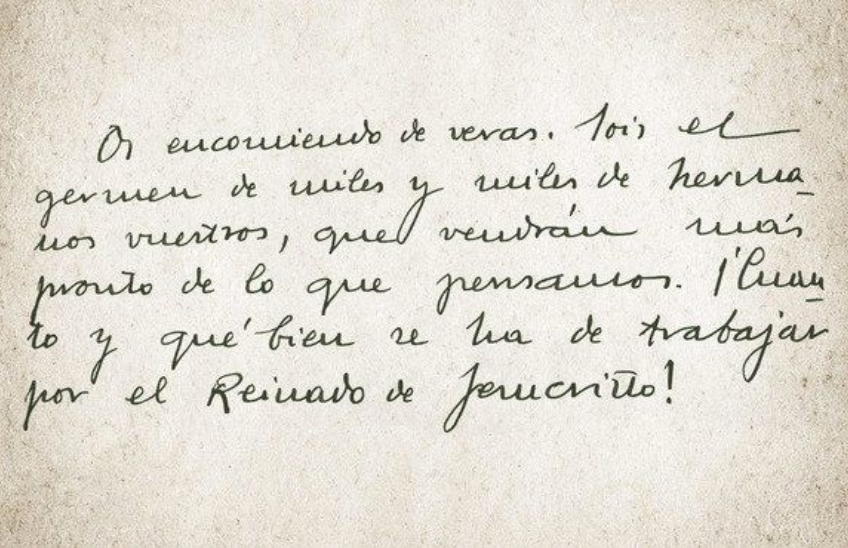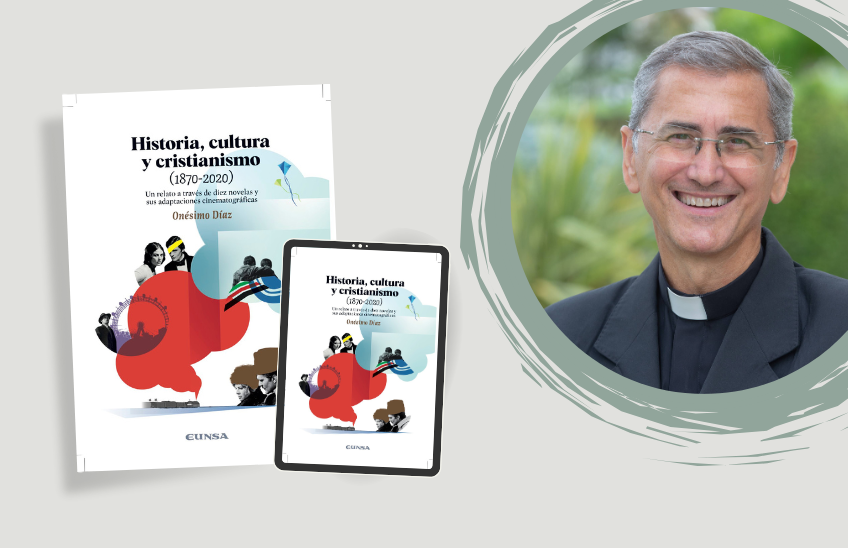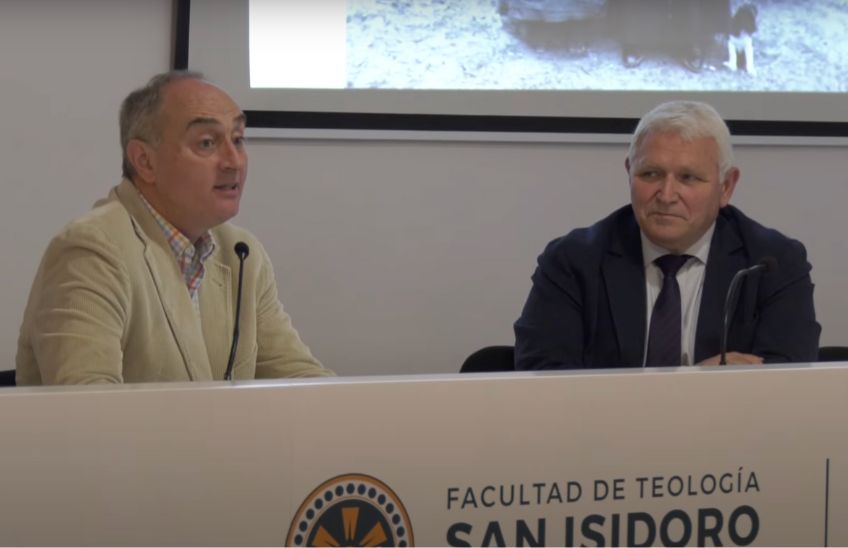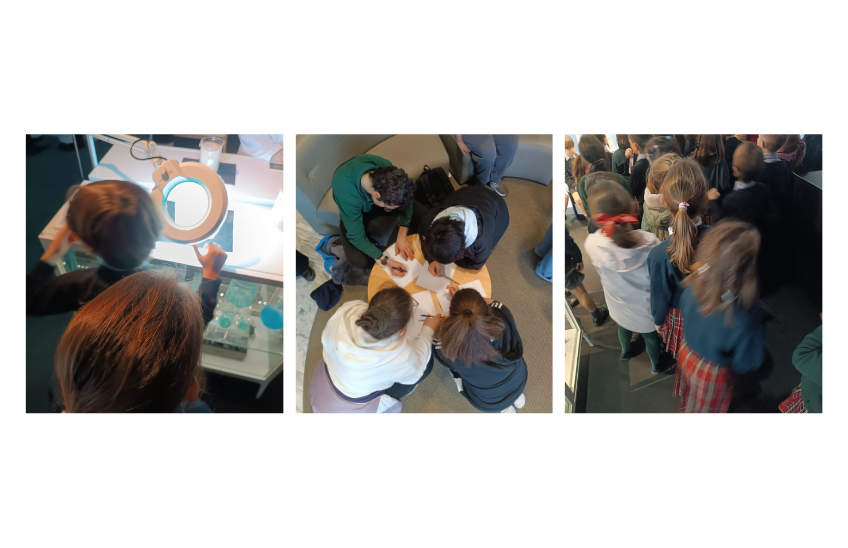75 years since the first Supernumeraries' Meeting of Opus Dei
In 1948, the first Supernumeraries' Meeting was held in Molinoviejo, Segovia. During those days, 15 participants, from different occupations and regions of Spain, received teachings on sanctification in the midst of the world and service to God in the midst of the world.

29 | 09 | 2023
Historian Luis Cano has pointed out that one of the most important milestones in the history of St. Gabriel's work was the first gathering of supernumeraries, held between September 25 and October 1, 1948, in Molinoviejo, Segovia. Fifteen participants took part in this meeting, conference , to whom Escrivá explained in depth what it meant to be a supernumerary of Opus Dei .
For twenty years, Josemaría Escrivá had been preaching to people from all walks of life about sanctification in the midst of the world. But it was after the pontifical approval of 1947 that married people could become involved in the Work, trying to "live the spirit and apostolate of the Institution, without being incorporated into it by a juridical bond. This possibility represented a great step forward, because it recognized that married people could sanctify themselves in their own state, according to the spirit of Opus Dei.
At that time, theology and canonical doctrine tended to identify the fullness of submission with religious life or similar realities, reserved to celibate persons. In those years some Church initiatives sought to revitalize the life of the laity and, in some cases, to offer a specific matrimonial spirituality. However, for St. Josemaría in Opus Dei there was "one and only one vocation" that required a total submission to Jesus Christ. Only that submission is realized in different circumstances.
The assistants
The origin of the fifteen who participated in the conference of Molinoviejo was quite varied. In his study, Luis Cano points out that there were four Cantabrians (Manuel Pérez Sánchez, Manuel Sainz de los Terreros, Ángel Santos and Pedro Zarandona); three Aragonese(Tomás Alvira, Rafael Galbe Pueyo and Mariano Navarro Rubio); one Galician (Jesús Fontán Lobé); one Spanish (Víctor García Hoz); one Andalusian (Hermenegildo Altozano) and one Mallorcan (Juan Caldés). Three others came from Valencia (Antonio Ivars Moreno, Carlos Verdú Moscardó and Silverio Palafox Marqués), and one from Bilbao (Emiliano Amann Puente).
Their occupations varied greatly: two of them were Navy officers, two others had training in military law; three were lawyers, one practiced as a judge. There were also two civil engineers, a teacher, a doctor, a pharmacist, a chemist and an architect. Cano comments that from their subsequent careers it can be said that "they were outstanding professionals in their field and that they left their mark as Christians among their relatives and friends. A part of them dedicated their efforts to start up social works of human promotion".
Days of training and prayer
According to the testimonies of those present, during those days the founder of Opus Dei encouraged them to maintain a close relationship with Christ and explained to them various aspects of their vocation, meeting .
The message that St. Josemaría shared with that group group of men, some of them married or with plans to form a family, did not differ from what he transmitted to other men and women who were seeking to live their vocation in celibacy. During those days of living together, he emphasized the importance of the contemplative life, the sanctification of the realities of the world and of work, as well as responsibility in temporal matters. He emphasized the idea of serving God and society in their individual roles, with the desire to radiate the Christian spirit in every aspect of their lives.
________________________
If you want to know more about this topic, we invite you to read the complete article by historian Luis Cano at Library Services Virtual del CEJE.
You may also be interested in:
The free downloadable book edited by Enrique Muñiz, Los primeros supernumerarios del Opus Dei.
The episode of the podcast Fragments of History, dedicated to Tomás Alvira.



